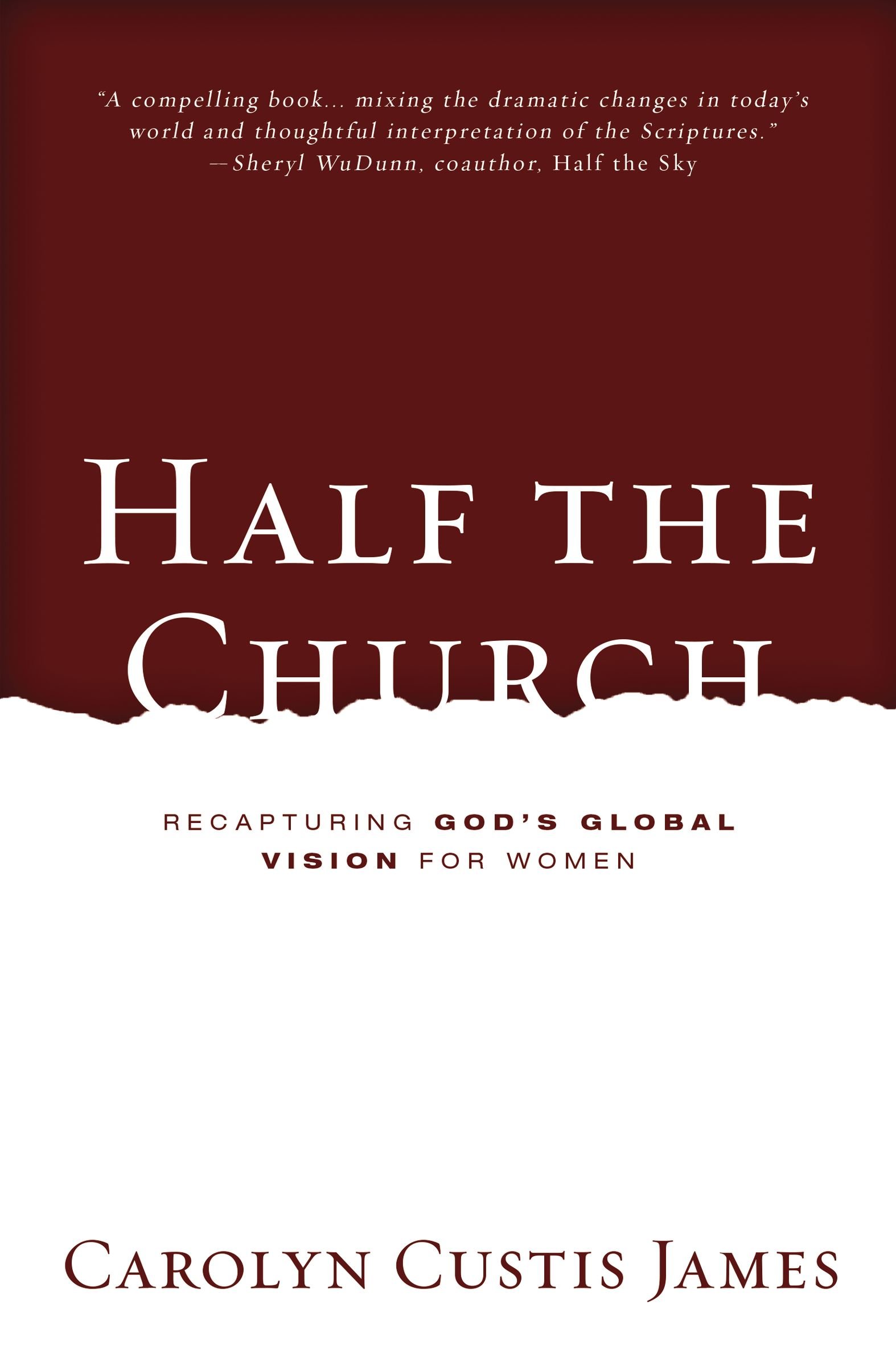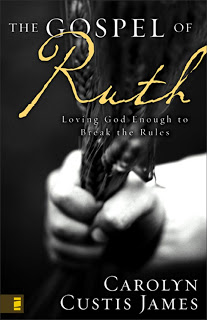Well, well, well. It seems that my friend Roy Ciampa’s article on Identity Mapping has stirred up the blogosphere a bit. I say that because thousands of you actually read it, and many felt compelled to render an opinion.
Such dialog is precisely the goal of WhitbyForum.
I can’t say I’ve been surprised by the number or intensity of responses—here, in emails, and on Facebook. This is what happens when someone sheds new light and challenges our thinking on an all too familiar passage of Scripture such as Paul’s Ephesians 5 instructions to husbands and wives. This text tends to have a fixed interpretation, and when that is challenged, it leaves some a little unsettled. If Dr. Ciampa is right, it means that we just might be wrong and that we might need to change. That makes folks uncomfortable.
For the most part, readers found Dr. Ciampa’s research eye-opening and extremely helpful. When I first read it, I thought it was earthshaking! And I’m thrilled to hear the ground is shaking beneath so many others.
There were those who expressed legitimate concerns. Some worried that if 1st Century marriages were so different from ours, then do Paul’s words have relevance for us? That is a fair question. (More about that below.)
And then there were those few (and you know who you are) we might call fear-driven Christians who accused me (sweet little me) of denying the authority of Scripture and of leading throngs astray—simply by posting the blog. In my defense, I just want to say that is “malarkey” (to borrow a phrase from Joe Biden). The whole point of posting Dr. Ciampa’s article is to gain a deeper understanding of the Bible and to bring its message forward to us today.
As for Dr. Ciampa (who is a very sweet person like me), he employed long-established methods of biblical interpretation. Actually, there’s nothing new or novel or irregular about studying the ancient world in which Paul lived and wrote. The ancient context always matters―especially for westerners like us who live 2,000 years later in a modern culture that is completely foreign to the world of the Bible. Ignoring the context of the original addressees is a surefire way to miss or misconstrue the writer’s intent.
But back to those who worry about where this is all heading.
Let me offer a word of assurance. Putting Paul’s words in the 1st Century context doesn’t let anyone off the hook with the need to grapple with the implications of Paul’s words for how we live out the gospel in our marriages and other relationships today. On the contrary, the more we dig, the more Scripture demands of us. And yes, it always demands that we repent and change. This is the Gospel. This is what it means to follow Jesus.
So what is my next move? – More of the same.
Let’s take this conversation further with a second blog post that focuses on the same Ephesians text and 1st Century culture. This post is by Chaplain Mike of www.internetmonk.com who has assumed the mantle of the original Internet Monk, the late and greatly missed Michael Spencer. Chaplain Mike has also wrestled with Paul’s words in Ephesians and how it transforms 21st Century marriages. In a word, he takes the gospel home.
When I first discovered his refreshingly helpful post―after following one of those winding trails of Internet links―the one line that jumped out at me was:
“What is expected of Christians in their households is that they will behave like Christians.”
What a novel idea! This one sentence blows out the centuries old walls constructed around Paul’s teaching. It opens a world of possibilities in our marriages and intimate relationships not only in the 1st and the 21st centuries but all the centuries in between. Imagine the revolution if we just asked ourselves:
“What does it mean to behave as a follower of Jesus in my relationship with my spouse, my parent, my child, my sibling, my neighbor?”
Not that this is easy—but what a magnificent goal!
Read the article, chew on it, and let me know what you think.
The NT Haustafeln (House-Tables)
 By Chaplain Mike
By Chaplain Mike
We would be remiss if we did not include some consideration of Biblical teaching about family relationships during this week on Internet Monk when we are talking about them. In this post we will look at one way the apostles taught the early church to live out their faith in the home.
Some of the primary instructional passages in the New Testament regarding family life are the“haustafeln”. This is the German word for house-tables or household codes; a word used since Luther’s time to describe Biblical passages detailing family duties.
For example,
- Ephesians 5:22-6:9
- Colossians 3:18-4:1
- 1Peter 2:18-3:12
P.H. Towner gives an overview of these household codes and related NT texts:
Colossians 3:18-4:1 and Ephesians 5:22-33 represent teaching addressed to the various members of the household. What distinguishes these blocks of teaching as a special form is the tendency to address church members according to household role and status (wives/husbands, children/parents, slaves/masters), reciprocity (each member being addressed), the delineation of appropriate behavior with a verb enjoining subordination (hypotasso) or obedience (hypakouo). These two passages represent the fullest expression of the NT household code. But 1Timothy 2:1-15; 5:1-2; 6:1-2, 17-19; Titus 2:1-3:8 and 1Peter 2:13-3:7 also contain teaching very similar in tone and form. And shorter sections of related teaching in 1Corinthians 14:33-35 (cf. 1Corinthians 11:3-16) about men and women…and in Romans 13:1-7 about the church’s posture toward the government appear to come from the same basic source.
These forms of ethical and relational instruction can teach us a great deal about how to think and teach about family matters in the church.
 First, teaching about family matters is done in the context of congregational instruction.
First, teaching about family matters is done in the context of congregational instruction.Household relationships are not viewed as a separate category to be dealt with through specialized teaching. Relationships within the family are treated by appealing to the same motivations and moral instructions that should guide all Christians in their behavior. In a very real sense, there is nothing different about the family — little additional instruction is required beyond the Gospel.
What is expected of Christians in their households is that they will behave like Christians!
For example, in Ephesians, the household code follows and grows out of this context:
Therefore be careful how you walk, not as unwise men but as wise, making the most of your time, because the days are evil. So then do not be foolish, but understand what the will of the Lord is. And do not get drunk with wine, for that is dissipation, but be filled with the Spirit, speaking to one another in psalms and hymns and spiritual songs, singing and making melody with your heart to the Lord; always giving thanks for all things in the name of our Lord Jesus Christ to God, even the Father; and be subject to one another in the fear of Christ. (Eph 5:15-21, NASB)
And in Colossians, the following congregational exhortations precede and lay the groundwork for Paul’s household instruction:
So, as those who have been chosen of God, holy and beloved, put on a heart of compassion, kindness, humility, gentleness and patience; bearing with one another, and forgiving each other, whoever has a complaint against anyone; just as the Lord forgave you, so also should you. Beyond all these things put on love, which is the perfect bond of unity. Let the peace of Christ rule in your hearts, to which indeed you were called in one body; and be thankful. Let the word of Christ richly dwell within you, with all wisdom teaching and admonishing one another with psalms and hymns and spiritual songs, singing with thankfulness in your hearts to God. Whatever you do in word or deed, do all in the name of the Lord Jesus, giving thanks through Him to God the Father. (Col 3:12-17, NASB)
The apostles did not “focus on the family,” they focused on the church, the community of believers. What they taught wives, husbands, children, parents, and other members of the household to do was of a piece with their moral counsel to the entire congregation.
We also see this within the codes themselves. Members of the household are exhorted to behave toward one another “as is fitting in the Lord,” in a manner that is “well-pleasing to the Lord,” and that exemplifies “fearing the Lord” (Colossians). In Ephesians, the motivations are similar: wives, husbands, children, parents, slaves and masters are to relate to one another “as to the Lord,” and to practice love “as Christ…loved,” etc. In the Ephesian household code, in fact, Paul goes so far as to say that what he is saying to husbands and wives isn’t really even about them — it is about Christ and the Church! (5:32)
 Second, NT instruction for the family is designed to enhance the reputation and witness of Christians in their society.
Second, NT instruction for the family is designed to enhance the reputation and witness of Christians in their society.I will not go into depth regarding the background of these household codes except to say that this form of instruction did not originate with the apostles; it was common in the Greco-Roman culture of their day. Though there is disagreement and many questions as to the exact sources of the apostolic haustafeln, it is clear that they were building on cultural models readily available to them (see the Towner article for more discussion of this).
That they both used and went beyond these codes is also clear. These NT house-tables present a fascinating example of Christianity both conforming to and transforming cultural norms for various purposes.
In terms of form, the apostles take a conservative approach here. The haustafeln portray role patterns that would have been recognized and considered status quo by most non-Christians in their society. As Towner writes, “What can be said is that through them the NT writers reflect sensitivity to the expectations of society at large and seem to encourage Christians to live according to patterns that were widely accepted as respectable.”
There is no radical departure from the family patterns of the Greco-Roman/Hellenistic Jewish world — husbands were head of the home, children were subject to their parents, masters ruled over their slaves. Christians are exhorted to conform generally to the ethos of their society.
However, the apostles also added enough Christian innovations to plant seeds of transformationin the family and society.
For example, in the standard instructions of the day, only those in authority were addressed and treated as responsible agents, whereas in the apostolic house tables, those in subordinate positions are addressed as equal and capable human beings, brothers and sisters in Christ, who share the calling to live in love as Christ did.
In addition, the instructions given to those in positions of authority are not what one might expect — directions about leading, making decisions, and keeping order in the household. Instead, they are called to follow Jesus’ example of willing subjection and self-emptying love as they relate to those society considered lower in rank.
These examples show that the house-tables are not about reinforcing particular roles in the family! Instead, they emphasize how members of families may show each other the kind of Christ-like love and respect that will prove redemptive and spiritually beneficial to fellow members of the household.
The haustafeln thus represent a “seed-planting” or “salt and light” approach that lay the groundwork not only for the transformation of households but also the broader society.
 Third, each generation must exercise wisdom in applying the teaching of these household codes so that Christians may gain the respect of their own societies and serve as salt and light.
Third, each generation must exercise wisdom in applying the teaching of these household codes so that Christians may gain the respect of their own societies and serve as salt and light.I do not believe that the NT haustafeln represent a supra-cultural “Biblical model for the family” (in terms of roles) that is meant to apply to all Christians in all generations and in all cultures. Rather, these household codes are given to increase the wisdom of Christians as they live among their neighbors, so that believers will (1) win their respect by fitting in with patterns of society that may be lawfully employed, and (2) get their attention by demonstrating an extraordinary love that goes beyond anything society has to offer.
One clear indication of the culturally dependent nature of these house-tables is their inclusion of instruction to masters and slaves.
Let’s think about this for a moment. When preaching and teaching on Ephesians 6:5-9 or Colossians 3:22-4:1, how should one approach the following texts? –
Slaves, be obedient to those who are your masters according to the flesh, with fear and trembling, in the sincerity of your heart, as to Christ; not by way of eyeservice, as men-pleasers, but as slaves of Christ, doing the will of God from the heart. With good will render service, as to the Lord, and not to men, knowing that whatever good thing each one does, this he will receive back from the Lord, whether slave or free. And masters, do the same things to them, and give up threatening, knowing that both their Master and yours is in heaven, and there is no partiality with Him.
Slaves, in all things obey those who are your masters on earth, not with external service, as those who merely please men, but with sincerity of heart, fearing the Lord. Whatever you do, do your work heartily, as for the Lord rather than for men, knowing that from the Lord you will receive the reward of the inheritance. It is the Lord Christ whom you serve. For he who does wrong will receive the consequences of the wrong which he has done, and that without partiality. Masters, grant to your slaves justice and fairness, knowing that you too have a Master in heaven.
The answer is, in our culture (at least here in the United States where I live), we should recognize at the outset that these passages do not address us. At all. They speak to a cultural situation that does not exist in our society. We should handle these instructions the same way we might a passage like Paul’s advice to Timothy, “No longer drink water exclusively, but use a little wine for the sake of your stomach and your frequent ailments.” (1Tim 5:23, NASB) In preaching on that text, I would explain why Paul might give such practical counsel in his day, and leave it at that. Paul is not our doctor! We’ve made a few medicinal advances since the first century! These words no longer apply to us.
Nor do Paul’s household instructions to slaves and masters. The apostle’s teaching reflects issues that his society faced, not ours. It is therefore problematic, for example, to apply these passages to contemporary employer/employee relationships, as many do. Paul is writing about acting as a Christian within ancient household arrangements that involved ownership of people as legal property, with rules and obligations that pertained to those arrangements. The context bears no resemblance to the free marketplace in which employers hire workers who are able to choose and apply for jobs, and in which employees as well as employers have rights and legal protections. Paul is addressing those involved in an official system that was profoundly contrary to Christian ethics, not only because of the cruelty of its practices but in the very nature of its existence. Thankfully, though slavery in various forms still wreaks far too much havoc in today’s world, it is no longer institutionalized as the status quo and is universally recognized as evil.
My point is that we cannot simply take these ancient household codes and interpret them simplistically as supra-cultural models for family roles in all times and places. Whole sections of them don’t even apply anymore!
 This leads me to suggest that the other role descriptions in the haustafeln should be read with wisdom and discernment in the light of our current cultural norms as well.
This leads me to suggest that the other role descriptions in the haustafeln should be read with wisdom and discernment in the light of our current cultural norms as well.For example, how do we apply apostolic instructions about husbands and wives in societies where men and women are not viewed in terms of “rank” and “subordination,” which was the view in the Roman empire, reflected in the language of these passages?
Or, how do we apply teaching about parents and children that reflects societies which did not have the category “teenager,” and in which there were entirely different rites of passage from childhood to adulthood?
It is not the purpose of this post to answer such questions. However, my goal is to encourage us to be better, more thoughtful, wiser readers and practitioners of Biblical teaching, that our reputation and witness in our world may be enhanced.
What is clear from these house-tables is that Christians are to be people of love, in their homes as well as in the church and world, and that this marks the primary difference between us and the way the world works. Our families may resemble and function in patterns that are similar to those of our unbelieving neighbors, but with regard to Christ-like love, self-emptying, and mutual service, we are called to excel the world’s ways at every turn.
Our lives, families, and churches are to be shaped, ultimately, by the Gospel — by Jesus.
Originally published here, August 20, 2012, at www.InternetMonk.com and republished with permission.

, Hawthorne/Martin/Reid, eds.
 Second, NT instruction for the family is designed to enhance the reputation and witness of Christians in their society.
Second, NT instruction for the family is designed to enhance the reputation and witness of Christians in their society. Third, each generation must exercise wisdom in applying the teaching of these household codes so that Christians may gain the respect of their own societies and serve as salt and light.
Third, each generation must exercise wisdom in applying the teaching of these household codes so that Christians may gain the respect of their own societies and serve as salt and light. This leads me to suggest that the other role descriptions in the haustafeln should be read with wisdom and discernment in the light of our current cultural norms as well.
This leads me to suggest that the other role descriptions in the haustafeln should be read with wisdom and discernment in the light of our current cultural norms as well.
















This is a great article – thank you for reposting it. It's refreshing to see an argument if you will for the simple way of Jesus. So many bloggers out there are snide towards the “red letters” of the Bible, and they are discrediting anyone that views the words of Jesus – from when he walked the earth – as something revolutionary and worth “most” of our attention. Paul, Peter, etc. got a lot very, very wrong. They tried, and I appreciate their efforts, but they were of the first of a looonnngg line of people (are we not all a little guilty of that) to steer us away from Jesus. We should read all of the Bible with a Jesus filter on. I think that part of the Bible is an expose of what NOT to do.
I agree with the writer that YES – we are to behave like Christians in our homes! “Our lives, families, and churches are to be shaped, ultimately, by the Gospel – by Jesus.” Again, very refreshing, and somehow I think onlookers would see Christ in Christianity again 🙂
LikeLike